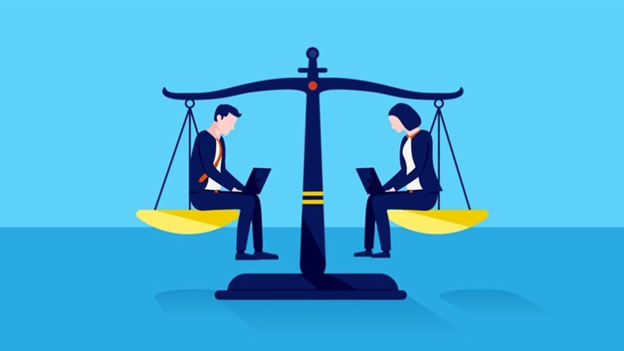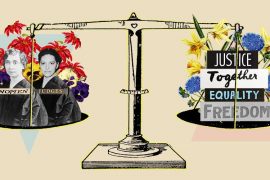You might feel uncomfortable talking to your coworkers about how much you make compared to your peers since it has historically been a taboo subject. To achieve female pay equity, however, normalizing pay transparency is a crucial first step.
Companies all across the world are implementing more pay transparency rules as a means of informing employees about pay-related information. The European Union has proposed to allow salaries to be broken down by gender.
The EU is currently negotiating legislation requiring businesses to be more transparent about these gender wage disparities because women in the EU make 14% less per hour than men.
Pay transparency may seem like a straightforward way to achieve pay equity. Still, it raises additional issues, including whether it is genuinely effective if businesses would level the playing field and whether it goes far enough for women’s rights.
According to research, pay transparency reduces the pay gap, but it doesn’t happen merely by raising women’s wages; men’s wages increase less quickly, according to a Danish study.
According to Morten Bennedsen, an economist and professor at the University of Copenhagen who collaborated on the study, “there’s no way that you can both boost girls’ earnings and men are equally satisfied, and the business makes more because something mystical happens.”
According to Elena Simintzi, an assistant professor of finance at the University of North Carolina Kenan-Flagler Business School, there is “a decline in productivity” that “seems to be countered by a reduced pay bill”, according to another study done in the United States.
How does women’s wage equity help them?
Simintzi’s research revealed that while it may have a favourable impact on women, it may hurt males.
“According to our analysis, the law achieved its goal of dramatically closing the gender wage gap; thus, it was a success. Additionally, it had several unanticipated advantages for women’s career prospects; she told Euronews Next.
Women are more likely to get hired and stay on staff at those firms, according to Simintzi, and receive more promotions. Pay transparency also aids in luring in fresh talent because employees are more inclined to stay with a firm.
Payscale, a software and analytics business, claims that staff members, particularly younger ones, are more likely to leave the company within six months if there is no salary transparency.
A company’s reputation may be badly harmed by a lack of pay transparency, as the BBC discovered in 2018 after 200 staff demanded that their employers disclose their wages and perks.
Simintzi discovered in a recent study that salary transparency improved mental health as she saw women using fewer antidepressants when salary transparency policies were implemented. But she pointed out that there had been a slight improvement for males.
She added that workplace justice profoundly and significantly impacts women’s well-being.
While many businesses support pay transparency, they are concerned about the expense and potential legal problems.
BusinessEurope, a lobbying organization for businesses in the European Union, stated that while it supports the goals of advancing gender equality and attaining equal representation of men and women in the labour markets, it is concerned that the EU’s draft directive on pay transparency is overly specific and prescriptive.
Maxime Cerutti, head of Business Europe’s social affairs division, claimed that this “doesn’t produce a trustworthy working environment, but a stepping stone for costly compliance and a danger of an unwarranted lawsuit.”
“For instance, it is essential that the exemption from the reporting requirement and combined pay assessment for businesses with less than 250 employees is maintained. “SMEs will have to incur significant administrative and financial constraints without much of an impact on eliminating wage disparities,” he told Euronews Next if this exception is not included.
Instead of the 250 employees originally suggested, the European Parliament voted in favour of mandating EU businesses with at least 50 employees to provide information that makes it simpler for coworkers to compare salaries and identify any gender pay gaps in their organization.
Additionally, MEPs want the European Commission to ban pay concealment in employment contracts and develop a mark to recognize firms that do not have a gender pay gap.





Comments are closed.